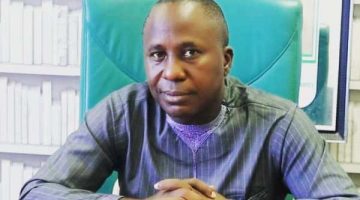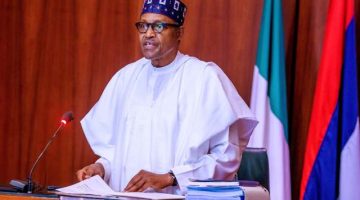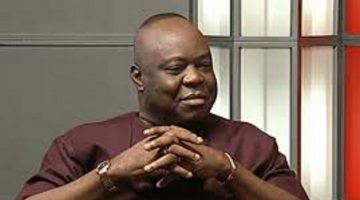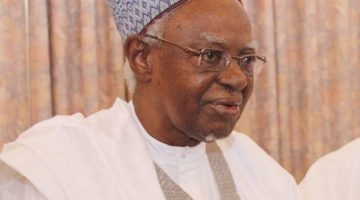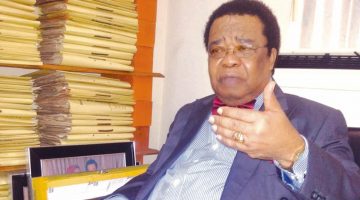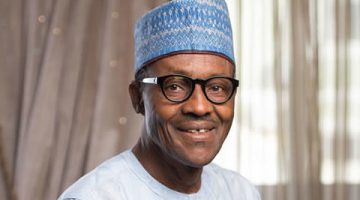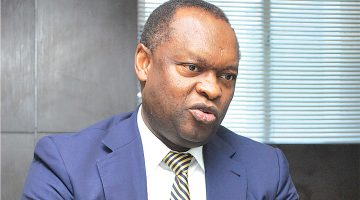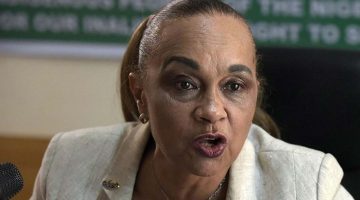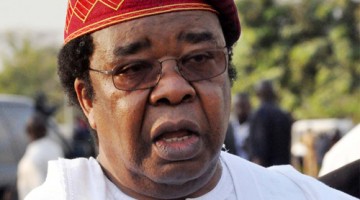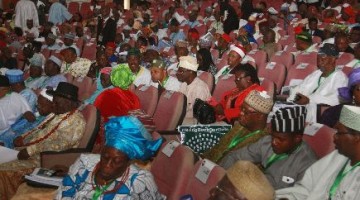“Is it not strange that we have pastors who buy jets… while members of the congregation are wallowing in poverty?”
The National Conference (National Confab) on Monday adopted a motion seeking for the businesses of religious institutions in the country to be taxed.
The adoption followed a motion by a delegate representing the Nigerian Guild of Editors, Isaac Ighure, during the debate on the report of the Conference Committee on Religion.
If the Conference’s report is eventually adopted, many Christian and Islamic organisations that run universities and other business concerns in Nigeria might begin to pay tax on them.
Among the Churches that operate universities are the Living Faith Church, The Redeemed Christian Church of God, Baptist Church and Catholic Church, while some Islamic groups such as NASFAT also run universities.
Mr. Ighure, who works for the News Agency of Nigeria, NAN, had during the debate said imposing taxes on the religious bodies had become necessary because they no longer contribute their required quota to human and economic development.
He lamented that religious institutions no longer preach spiritualism, but now concentrate on materialism and prosperity.
He said taxing the businesses of the institutions could help to generate funds for the needy in the society.
“What we need in this country is spiritual growth. When people grow spiritually, they are likely to love one another,” the delegate said.
“Is it not strange that we have pastors who buy jets, mobile houses that they call jeeps while members of the congregation are wallowing in poverty? This needs to be corrected. May be they should set up a body to teach themselves how to preach spiritual growth.
“They should also be made to pay taxes because they are making so much money. I don’t know how much a jet costs but I know they are expensive. A man who is able to afford a jet should be able to pay taxes to the state to help the poverty-stricken members of their congregations.”
Mr. Ighure, who is the National Secretary of the NGE, said Nigerians had failed the two major religions, Islam and Christianity to which they belonged.
He said, “Islam and Christianity have not failed us, we the adherents have failed them.
“Both religions believe in love, fairness, justice and equity but what do we adherents do? We have abused all of those values. I think we need to redefine our values to be in line with what those religions preach.”
The delegate suggested that the religious groups should start teaching love to the children from kindergarten even as he demanded that the two groups should speak with one voice to correct the lack of trust between them.
A delegate representing Civil Society Organisations, Naseer Kura, backed the motion for the religious bodies to be taxed.
“The tax exemption being granted to religious bodies should be stopped by the federal government. They should be taxed because they are making money,’’ Mr. Kura said.
Musa Elayo, representing House of Representatives Forum, also pleaded that the elites in the society stop using religion to cause loss of lives.
A South East delegate, Dozie Ikedife, said it had become necessary to regulate the noises and sounds the religious bodies generated, especially at odd hours.
According to him, “It has been established that excessive noise is dangerous to health. That is health hazard and pollution.
“We should have legislation to control avoidable, excessive loud noise from religious preachers who use megaphone to disturb the neighbourhood at odd hours with their loud sermon, music, hysterical noises,” Mr. Ikedife said.
Another delegate, Ambrose Okoli, said a man in search of religion should do it quietly between him and his God.
Mr. Ikedife, a former President of Ohana Eze Ndigbo, also called for a recommendation to discourage or proscribe any religion or organisation that preaches or practices hate, attacking, killing or burning of property or abduction of people.
A veteran journalist, Ray Ekpu, representing South-South, said that religions, families and schools have not done their jobs properly.
“That is part of the reasons why the society is like this. These institutions ought to have done a lot more in curbing the evils that we have in present day Nigeria,’’ Ekpu said.
A South West delegate, Femi Okurounmu, however accused the committee of shying away from the crucial issue of whether Nigeria is a secular state or a religious state.
According to him, Section 10 of the 1999 Constitution had been given different interpretations by different people with regard to the secularity of Nigeria.
During a presentation of the report by its co-chairman, Nurudeen Lemu, during the plenary session, the committee was applauded by the delegates for its thorough analysis, through simplifying of knotty issues and for coming up with daring recommendations.
Source : http://www.premiumtimesng.com/national-conference/ngconfab-wants-businesses-run-nigerian-religious-institutions-taxed/


